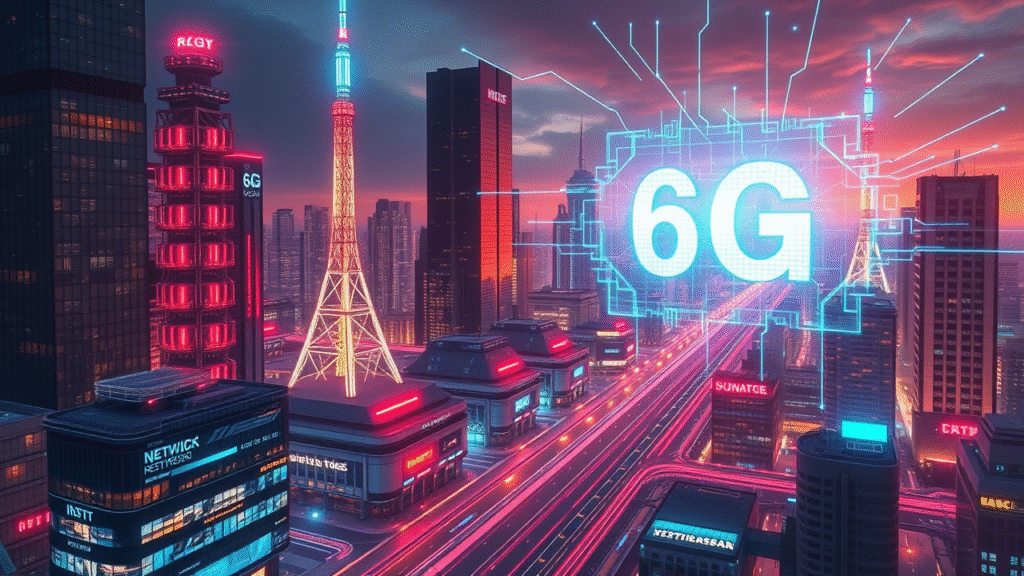Privacy in a Hyperconnected World, Evolving Landscape
The digital age’s ultimate concept of privacy has become one of the most contentious—quickly approaching last place. Data collection and surveillance capabilities are all getting more powerful with technological advancement and can now collect more data, faster, than we can shed anonymity.
In the 2000s, the Web era had just kicked off, and privacy fears focused mainly on internet cookies, simple data tracking elements, and whistle-blowers like Snowden exposing government surveillance programs.
Then in 2050, the real world has escalated all these technologies into a hyperconnected web — with wearable devices and everything connected. Interactivity is abundant, and everyone has a digital footprint.
Why Privacy Is More Important Now
Privacy is not just about keeping things you don’t want others to know. It’s about defending individual independence, the right to free speech, and human dignity.
The stakes are too high in a world where your biometric data, location, health status, even thoughts (through BCI) can be measured or hijacked.
Some consequences of privacy loss include:
-
Governments and Corporations spying on citizens en masse, potentially leading to social control and discrimination.
-
Attackers exploiting data-rich environments, increasing identity theft and fraud.
-
Behavioral profiling and manipulation — from political influence to shopping behavior.
-
The death of personal freedom as mass surveillance becomes normalized.
Philadelphia (2050): Technologies That Will Shape Privacy
Understand the technologies that redefine anonymity, and you’ll begin to question whether you can ever truly hide from anyone:
-
Ubiquitous Sensors and IoT: From homes to clothing to public spaces — everything streams data.
-
AI Datanomics: Analyzes massive datasets on the fly in ways no human can.
-
Biometrics: Facial recognition, DNA scans, heartbeat signatures — your biology becomes your ID.
-
BCIs (Brain-Computer Interfaces): Enable thinking measurement, deeply invading privacy of thoughts and emotions.
-
Quantum Computing: Breaks today’s encryption while introducing new secure communication methods.
The Paradox of Convenience vs. Privacy
We constantly trade privacy for convenience. Massive amounts of personal data fuel smart assistants, personalized services, and digital luxuries.
Users willingly surrender anonymity for better recommendations, usability, and connectivity — a paradox that both preserves and erodes privacy rights.
Big Iron, Big Brother & The Death of Anonymity in 2050
The 2050 universe is data-driven — where cyberpunk-style data is the new oil. Welcome to the era of Surveillance Capitalism, shaping the economy and society alike.
What does that mean?
Personal data is a commodity. Think Big Tech — constantly monitoring, analyzing, and predicting everything you do. It’s no longer just clicks and searches. By 2050, companies can interpret facial expressions, tone of voice, biometrics, eye movements, and more using AR glasses and neural implants.
Behavioral signals power AI systems that:
-
Predict and shape your behavior
-
Build detailed digital profiles
-
Deliver hyper-personalized ads
-
Operate mostly without your knowledge
Surveillance in 2050: Real-World Examples
-
Smart cities monitor crime and behavior in real time
-
Health wearables stream data 24/7 to insurers or health providers — often without consent
-
Home AI systems report anomalies to manufacturers or authorities
-
AR lenses detect what you’re looking at and who, serving targeted content accordingly
Government and the Global Panopticon
It’s not just corporations. Governments have built nationwide surveillance networks, citing security, public health, or order as justification.
AI drones, predictive policing, and mass surveillance walk the line between protection and authoritarianism.
In authoritarian regimes, surveillance tech is used to:
-
Monitor dissent
-
Suppress political opposition
-
Enforce social credit systems
Even democratic societies struggle with balancing security vs. individual rights.
More Privacy-Invasive Trends to Watch
-
Mass facial recognition in public spaces
-
Biometric IDs linked to money, voting, and travel
-
Emotion-recognition AI in schools and workplaces
-
Neural surveillance — reading intentions (still controversial but growing)
The Disappearance of Anonymity
By 2050, true anonymity is nearly extinct.
Walking into a café, browsing the web, or protesting — without leaving a trace — is almost impossible. Every movement, transaction, emotion is logged.
Unless you’re an expert using decentralized systems, zero-knowledge proofs, and air-gapped devices, privacy is nearly gone.
Fighting Back: The Rise of Privacy Technologies
As surveillance capitalism and government scrutiny peaked, a counterforce emerged — empowering users with privacy-preserving technologies.
Privacy in 2050: Can You Ever Truly Be Anonymous Again?
Privacy in a Hyperconnected World, Evolving Landscape
The digital age’s ultimate concept of privacy has to become one of the least and most contentious—quickly approaching last place.
Data collection, surveillance capabilities are all getting more powerful with advancement of technology and must be able to collect more and at a faster pace than we can shed anonymity.
In the 2000s, Web era has just kicked off and privacy fears focused mainly on internet cookies, simple data tracking elements, and whistle-blowers like Snowden exposing government surveillance programs. Then in 2050, the real world has escalated all these technologies into a hyperconnected web of interconnected with wearable devices and everything — abundant interactivity and everyone has digital footprint.
Why Privacy Is More Important Now
Privacy is not just about keeping the shit that you don’t want others to know from other people. It is to defend individual independence, the right to free speech and human skin. Stakes are way too high in a world where your biometric data, location, health status, even thoughts (through BCI), can be measured or hijacked, the downsides are unimaginative.
Some of the loss caused by loss of privacy is:
-
Governments & Corporations have been spying on us in mass and its also likely leading to a form of social control for discrimination.
-
The Complication Of Attackers Exploiting Data–rich Environments: Identity Theft and Fraud Increasing in Sophistication.
-
Behavioral Profiling and Manipulations to sway actions from political to shopping.
-
The death of personal freedom as societal zeitgeist catch on to the new norm based on ubiquitous surveillance.
Philadelphia (2050): Technologies That Will Shape Privacy
Know the technologies underlying the definition of anonymous and later you will be able to guess whether hide from the nobody will prevail:
-
Ubiquitous Sensors and IoT: Everywhere, from physical homes to streets to your clothing to continuous streams of data.
-
AI Datanomics: Can collage and explain massive datasets on the fly that no human can see.
-
Biometrics: Whether it be facial recognition, DNA scans, or heartbeat signatures, the biological will be our new ID.
-
BCIs (Brain-Computer interactions): Possibly thinking measurement enabling the most severe privacy inference for thoughts and emotions.
-
Quantum Computing: Can be used to both circumvent current encryption methods and exploit novel types of secure communication.
Paradox of Convenience vs. Privacy
We make many trade-offs in privacy because of our culture of convenience: massive amounts of personal data; smart helpers, personalized services and integrated digital luxuries. Users will typically give up their anonymity for better recommendations, usability and social connectivity.
This tension, driven by the paradox of technology and its place in preserving (or eroding) privacy rights.
Big Iron, Big Brother and Death of Anonymity in 2050
The 2050 Universe is data running
Cyberpunk data = new oil, bitcoin. In this hyperconnected society, surveillance capitalism is shaping the economy.
What on Earth does that imply?
The era of Surveillance Capitalism is described as making personal data a commodity (think Big Tech and the never-ending monitoring, analysis and predictive modeling).
It is not only about tracking clicks or searches anymore. Before 2050, companies can be used to mask your facial expressions, tone of voice, biometric response, eye gaze or micro expressions by augmented reality glasses and neural implants.
Behavioral signals are used by intelligent AI systems to:
-
Predict and shape consumer behavior
-
Build digital profiles
-
Output hyper-personalized content, ads, and messages
-
Often obfuscated from end users about these data-driven practices
Surveillance in 2050 — Examples
-
Smart cities use the AI surveillance system to observe human pace of life, crime situation and to enforce legal regulations real-time.
-
Health wearables; data from 24/7 streaming to health providers and insurers — often without opt-in options
-
The home AI systems listen and keep watching for turning off the settings of home environment but also telling the manufacturers or authorities of anomalies.
-
AR lenses see into your eyes to measure what you are looking at — ads content and even people.
Government and the Global Panopticon
Not just corporations. Governments have built massive surveillance networks, often by the metre in whole countries and regions — largely on arguments of national security, public health or digitized surveillance.
Cities come to life with AI-monitored drones that predict your future using predictive policing algorithms — somewhere between public protection and authoritarian control.
Also more key privacy-invasive practices to watch:
-
Public Space Mass Facial Recognition
-
Mandatory biometric IDs tied to money, voting and travel
-
Schools and offices worldwide have emotion recognition AI
-
Biological crystallization — neural surveillance to read intent in dangerous places (still controversial, but on the rise)
The Disappearance of Anonymity
By 2050, the idea of walking into a coffee shop, browsing the web, or attending a protest without leaving a digital trace sounds almost quaint.
Anonymity is now an endangered concept — and in some regions, almost extinct.
Unless you’re a cyber-savvy privacy maximalist using extreme measures like decentralized systems, zero-knowledge proofs, and physically air-gapped devices, true anonymity is close to impossible.
Fight Back: The Rise of Privacy-Oriented Technologies
Because by 2050 surveillance capitalism and government scrutiny reached a dystopian peak, a counterforce took over — revolution privacy-preserving technologies to empower users and resist data exploitation.
Although anonymity is hard to achieve, it’s not entirely dead… yet.
Encryption Goes Quantum-Proof
In 2050, traditional encryption methods from the 2020s are obsolete. With quantum computing capable of breaking RSA and ECC in minutes, privacy tech had to evolve fast.
Enter Post-Quantum Cryptography (PQC)
-
Algorithms that resist quantum attacks and form the new backbone of secure communications
-
Lattice-based cryptography, hash-based signatures, and multivariate polynomial algorithms
-
Messaging apps, file storage services, and IoT devices come standard with quantum-proof end-to-end encryption
Homomorphic Encryption
Data can be processed without decrypting it.
-
AI can analyse your medical data without any personal information leaked
-
Banks and governments will compute against confidential data without seeing it
-
Advertising systems target you anonymously with encrypted preference profiles
Decentralization to the Rescue?
By mid-century, a decentralized network movement was unleashed — mainly enabled by blockchain, distributed storage and peer-to-peer protocols.
Decentralized (Privacy-Preserving) Tools:
-
Decentralized VPNs and browsers like MeshNet
-
Obscura OS that funnels your traffic around thousands of nodes
-
Self-sovereign identity (SSI)
-
Zero-knowledge proofs (ZKPs)
AI That Works With YOUR Privacy
Surprisingly, the tool to repeatedly invade your privacy is also the one deployed to try and ensure we keep on keepin’ that private.
In 2050, Privacy AIs became the online watchers that scanned for ID threats every second and stopped fishy file writes.
Agent of AI Personal Privacy
-
Live leak detection & auto-block of data flows
-
Serve as your smart consent agent: never having to wade through 100-page terms & conditions
-
Hide metadata and digital footprints for you
Some of these agents use adversarial AI to confuse trackers, making patterns in your behavior appear randomly — like putting an invisibility cloak on the web.
Privacy Laws — True or False?
By 2050, most countries have GDPR 5.0 — California DPA or Digital Rights Acts that claim to defend privacy. However:
-
Weak implementation in many pockets
-
Big Tech and data brokers use missed opportunities as alibis
-
Surveillance-as-a-service underground commodity market is booming
Yet: Global privacy alliances (digital-first nations are leading) are fighting back with significant breach mechanisms, real-time audits, and harsh punishments.
Living in a Post-Privacy World – Accepting or Rebellious?
1. Privacy Fatigue
Most just gave up.
Argument: Lose the fight? They already know everything.
-
Sharing for convenience and wagers
-
AI systems for governing choices and risk
-
Watched, but not detached
2. Privacy Rebellion
A few refuse.
-
They are analogue tools people
-
Live in very low-surveillance areas
-
Use always-off devices
-
Fortifications of the meshland: open-source counter-surveillance communities expand on mesh nets and end-to-end encrypted forums
-
Digital resistance redacts art, activism and literature sometime by 2050
Anonymity: A Privilege of the Rich
Real privacy is the new luxury good. The rich and powerful can afford to:
-
Go off-the-grid in smart bunkers protected by inner layers of AI
-
Identity obfuscation: uniform personas, erased digital footprint
-
Deepfake decoys to obscure facial recognition and biometric tracking
The rest of us? Stuck in a glass society — fully transparent, not much opacity.
What Privacy Will Mean in 2050
Hiding isn’t just forbidden — privacy is about control.
The real question isn’t “Can you be anonymous?” but:
“Who owns your data, and who decides what happens to it?”
People in 2050 fight for:
-
Informed consent: Transparent, revocable real-time permission models
-
Data dividends: Getting paid for what’s shared
-
Digital autonomy: The right to be deleted and erased on demand
Can You Ever Be Anonymized Again?
Technically? No — not until you disappear from society altogether.
Effectively? If you can recapture the baton.
In 2050, privacy is no longer being unseen — it’s being seen on your terms.
Final Thoughts
Technology and its concomitant strangulation is the iceberg of 2050.
We live in illusory anonymity: absolute anonymity is a ghost faded away.
Self-determination on the digital frontier is our most vital freedom.
Now, very, very informally — when you live in an all-watchful world where every move you make, every word escapes, and every thought fares cold in the snow — the most radical thing may be to decide exactly who the hell you are quietly and solely.



